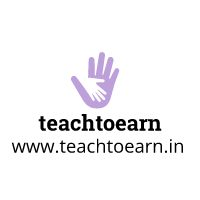We often believe that education is about schools, syllabi, and smart gadgets. But what if the real magic lies elsewhere? In this heartfelt conversation, Dr. Malpani reveals the true secret ingredient behind successful learning—and it’s not a textbook or a tech tool. It’s the presence of a caring adult, a supportive environment, and a shift in mindset. Discover how digital learning pods are combining AI tutors with human connection to reignite curiosity, confidence, and creativity in children across India.

Parent: Dr. Malpani, I’ve been hearing a lot about your digital learning pods—especially ApniPathshala. I understand that the idea is to use affordable PCs and AI tutors like https://eklavya.io/ to make quality education accessible. But isn’t technology just a tool? What’s the real difference here?
Dr. Malpani: That’s a great question. You’re absolutely right—technology is just a tool. A powerful one, no doubt. A fully featured education PC and an intelligent AI tutor can do wonders, but they’re not the magic sauce. The real secret ingredient—the one that makes the entire recipe work—is the human in the loop.
Parent: You mean a teacher?
Dr. Malpani: Not quite. Not in the traditional sense. In our pods, we don’t need someone to lecture or discipline or test kids all day long. What we need—and what makes all the difference—is a caring adult. Someone who supervises, guides, and mentors. Someone who knows when to step back and give children the autonomy and agency they need to explore, fail, try again, and ultimately learn for themselves.
Parent: That sounds beautiful in theory, but can children really learn without structured teaching?
Dr. Malpani: They can—and they do. Every day. Children are natural learners. Just watch a toddler figure out how to walk or a teenager teach themselves how to edit videos on YouTube. When they’re curious, when they’re supported, and when they’re trusted, learning happens organically. We need to provide scaffolding and structure – not a straitjacket. And when you add peer learning to the mix—friends learning with and from each other—it becomes magical.
Parent: But aren’t peers a distraction? I mean, don’t kids goof off when they’re in groups?
Dr. Malpani: Of course they do! And that’s okay. Laughter, play, arguments, collaboration—these are not distractions from learning, they are learning. They help children build social intelligence, emotional resilience, and problem-solving skills. In fact, some of the most powerful learning moments happen in these unstructured peer-to-peer interactions. What makes it work is the presence of that caring adult who provides just enough structure to keep them focused without micromanaging.
Parent: So the adult is like a facilitator, not a teacher?
Dr. Malpani: Exactly. They set the tone. They create a safe and supportive space. They’re not there to teach content—they’re there to help children learn how to learn. They help kids reflect, ask questions, and navigate obstacles. And because these pods are small and rooted in the community, the adult often becomes a mentor figure who understands each child’s context, personality, and pace.
Parent: Hmm. And you really think this model can scale across India?
Dr. Malpani: Absolutely. In fact, we’re already seeing it happen at a 100 www.apnipathshala.org pods all across India. What’s holding us back isn’t the lack of money or hardware—it’s the mindset. We’ve been conditioned to believe that good education can only happen in big buildings with uniforms, bells, and blackboards. But that’s just factory schooling. Real learning—deep, joyful, meaningful learning—happens in smaller, human-scale environments, where children feel seen, heard, and empowered.
Parent: It sounds so different from the schools we grew up in…
Dr. Malpani: And that’s precisely why we need it. The old system is crumbling under its own weight. It prepares children for a world that no longer exists—one where obedience and memorization were prized. But today, the world belongs to those who can think, adapt, and collaborate. We owe it to our children to give them the skills and the freedom to shape their own future.
Parent: But what about parents like me who aren’t educators? Can we really help?
Dr. Malpani: You don’t need to be an expert in pedagogy. You just need to care. You can start a pod in your own home, society, or local community center. You can rope in other parents, retired teachers, or enthusiastic volunteers. And you can rely on a rich ecosystem of online content and AI tutors that can guide the kids through subjects far better than most textbooks or school lectures. Your role is to hold the space, not fill it.
Parent: But won’t this feel like a step backward? Like we’re giving up on the formal school system?
Dr. Malpani: It’s not giving up—it’s stepping up. You’re reclaiming your child’s learning journey. You’re not waiting for broken institutions to fix themselves. You’re building something better, from the ground up. Community-based learning pods are not a rejection of education—they’re a rediscovery of what true education can be.
Parent: And what if I fail? What if my child falls behind?
Dr. Malpani: Behind what? That’s the beauty of self-directed learning. There’s no rat race, no standardized yardstick, no one-size-fits-all benchmark. Your child will move forward on their own unique path. They’ll learn how to learn—and that’s the ultimate superpower. In fact, children from our pods often outperform their schooled peers—not just academically, but in confidence, creativity, and clarity of thought.
Parent: You’ve given me a lot to think about, Dr. Malpani. I’ve always felt that something was missing in my child’s school life—but I didn’t know I had the power to do something about it.
Dr. Malpani: You do. We all do. Education is too important to outsource blindly. It begins at home. In the community. With trust, with curiosity, and with courage.
Take matters in your own hands by starting your own digital learning pod – your children will not get a second chance! 👉 https://www.teachtoearn.in/start-a-teach-to-earn-learning-pod/
